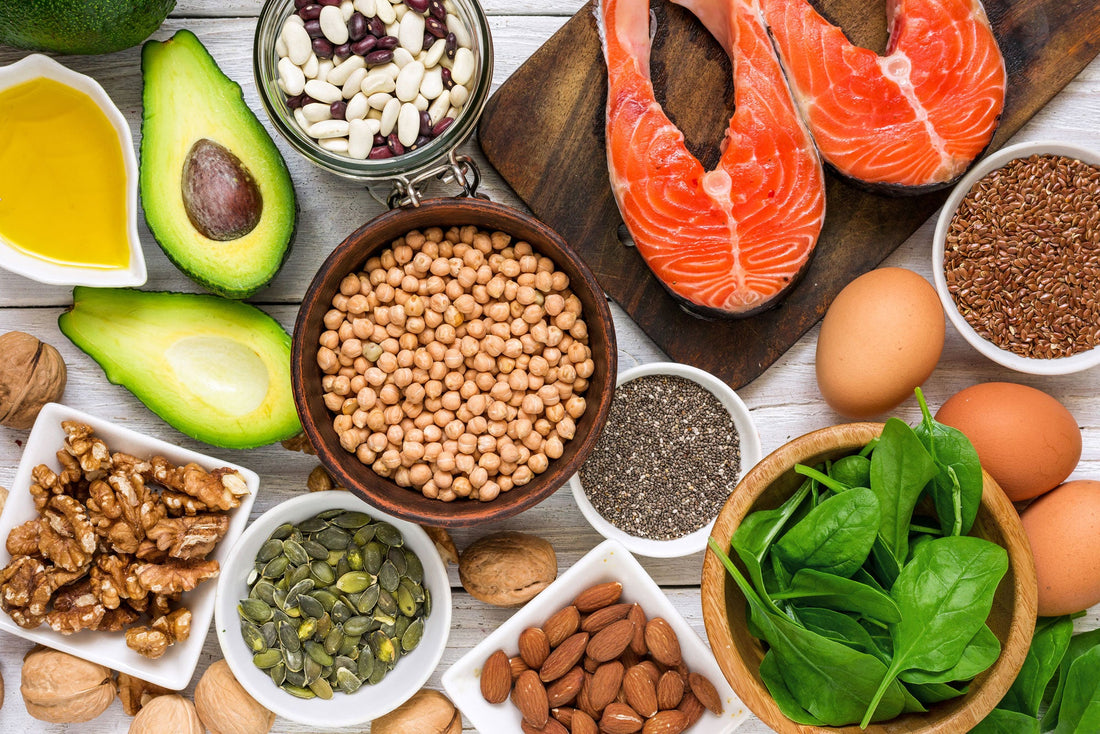
What is Lipase?
Share
All enzymes are important, but when it comes to digestion, three main enzymes stand apart above the rest. These are amylase, which helps break down carbohydrates; protease, which helps breaks down proteins; and lipase, which helps break down fats.
The Role of Lipase
Lipase is important because, in many cases, there are misconceptions about what fats you should eat and what they do to your body. Here’s how lipase factors into the conversation. Like many other enzymes, lipase is produced naturally by the body, in this case, in the pancreas. When you eat foods with fat content, the fat can’t be absorbed by the body in its original form. Lipase has the crucial function of breaking fats down into fatty acids and glycerol, products that can be carried in water-based fluids like blood and lymph. These components are used throughout the body to provide energy.
There are some types of lipase with more specific roles as well. For example, when food reaches the stomach, stomach cells create a type of lipase called gastric lipase, specifically designed to target butterfat. However, in order to break fat down into what your body uses for energy, lipase doesn’t act alone. Once fat reaches the small intestines, bile is released by the gallbladder to help break down fat molecules into much smaller molecules that lipase can act on. Eating fat actually stimulates the release of bile, so those with too little fat in their diets may actually develop gallbladder issues due to the bile there becoming stagnant.3 For those who have had their gallbladder removed, it is even more essential to get proper levels of lipase, to make sure fats are digested efficiently.
Getting the Most from Lipase
The primary function of lipase is to help the body process and absorb fat, but science is starting to show that there are other benefits that may come from it. One of the most essential is the role it plays in managing triglycerides. This is a form of fat that is needed for energy, and you should have some levels of triglycerides in the body – but higher levels can lead to heart issues. Lipase helps keep your triglycerides at a healthy level by breaking them down into smaller molecules, which the body then uses for energy.4
Studies have shown that some people with digestive issues may also benefit from supplemental lipase, especially if they have problems with their pancreas. If the pancreas’s ability to produce enzymes is diminished, this may lead to digestive discomfort. Supplementing with pancreatic enzymes, lipase included, may be suggested as a way to help relieve digestive discomfort.
Lipase Supplements
You don’t have to have problems in order to benefit from lipase supplementation. Enzymes on the whole not only help us with a smoother digestive process, they also support the absorption of essential nutrients. Making sure you have the necessary lipase levels is one of the best complements you can have to a balanced diet for overall health support.5
When it comes to making the most out of your lipase, you want to make sure that you are getting enough of it on a consistent basis. A good way to ensure that this happens is through dietary supplements like Enzymedica’s Lypo Gold, which uses a high-potency lipase blend to promote fat digestion in a quick and efficient manner. This can help reduce discomfort associated with fatty food digestion, enable better nutrient absorption, and lower stress on the gallbladder, liver and pancreas.
Fatty foods get a bit of a bad rap, but it’s important that you don’t try to skip out on fats completely. Try to look for healthy fats from the healthiest sources. Along with this, you want to make sure that when you eat those healthy fats, you’re getting as much energy from them as possible. This means working to keep up healthy levels of lipase.
- Olivecrona G. Role of lipoprotein lipase in lipid metabolism. Curr Opin Lipidol. 2016;27(3):233-41.
- Hamosh M. Lingual and gastric lipases. Nutrition. 1990;6(6):421-8.
- Njeze GE. Gallstones. Niger J Surg. 2013;19(2):49-55.
- Oscai LB, Essig DA, Palmer WK. Lipase regulation of muscle triglyceride hydrolysis. J Appl Physiol. 1990;69(5):1571-7.
- Fieker A, Philpott J, Armand M. Enzyme replacement therapy for pancreatic insufficiency: present and future. Clin Exp Gastroenterol. 2011;4:55-73.

